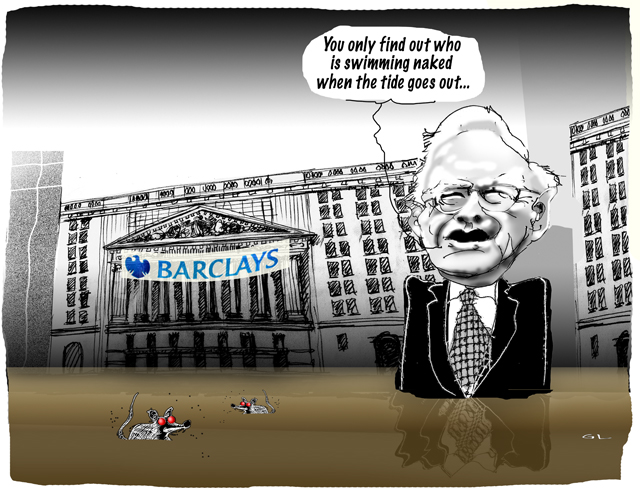Search
Recent comments
- crummy....
6 hours 35 min ago - RC into A....
8 hours 28 min ago - destabilising....
9 hours 31 min ago - lowe blow....
10 hours 3 min ago - names....
10 hours 40 min ago - sad sy....
11 hours 5 min ago - terrible pollies....
11 hours 15 min ago - illegal....
12 hours 27 min ago - sinister....
14 hours 49 min ago - war council.....
1 day 35 min ago
Democracy Links
Member's Off-site Blogs
as the tide goes by...

- By Gus Leonisky at 12 Jul 2012 - 1:17pm
- Gus Leonisky's blog
- Login or register to post comments
creativity...
We should be alarmed that corporate wrongdoing has come to be seen as such a routine occurrence. Capitalism cannot function without trust. As the Nobel laureate Kenneth Arrow observed, “Virtually every commercial transaction has within itself an element of trust.”
The parade of financiers accused of misdeeds, booted from the executive suite and even occasionally jailed, is undermining this essential element. Have corporations lost whatever ethical compass they once had? Or does it just look that way because we are paying more attention than we used to?
This is hard to answer because fraud and corruption are impossible to measure precisely. Perpetrators understandably do their best to hide the dirty deeds from public view. And public perceptions of fraud and corruption are often colored by people’s sense of dissatisfaction with their lives.
Last year, the economists Justin Wolfers and Betsey Stevenson from the University of Pennsylvania published a study suggesting that trust in government and business falls when unemployment rises. “Much of the recent decline in confidence — particularly in the financial sector — may simply be a standard response to a cyclical downturn,” they wrote.
And waves of mistrust can spread broadly. After years of dismal employment prospects, Americans are losing trust in a broad range of institutions, including Congress, the Supreme Court, the presidency, public schools, labor unions and the church.
Corporate wrongdoing may be cyclical, too. Fraud is probably more lucrative, as well as easier to hide, amid the general prosperity of economic booms. And the temptation to bend the rules is probably highest toward the end of an economic upswing, when executives must be the most creative to keep the stream of profits rolling in.
http://www.nytimes.com/2012/07/11/business/economy/the-spreading-scourge-of-corporate-corruption.html?src=me&ref=general&pagewanted=print
Gus: this is where I come in... Education these days tend to equate "unbridled creativity" with success and art... Often kids are taught to draw anything that comes trough their head — so that we're not inhibiting the "creativity" at "that early age"... When I mention that art, sciences and mathematics are strongly linked, often people look at me with a blank face...
Sure one can come to a certain level of art by not learning anything and achieve a beautiful acceptable artistic mess... Same in banking... Many executive aspire subconsciously to being creative artists... and in their field of operation they also need to know that some colours don't mix well...